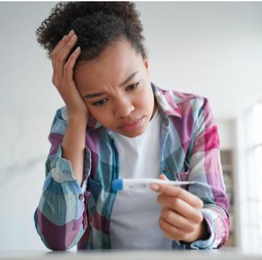How To Treat Anxiety Disorders
What Causes Anxiety –
How to Treat Anxiety Disorders :
If you’ve ever felt nervous before a big test or presentation, you’ve experienced anxiety. Anxiety is a normal human emotion that everyone experiences from time to time. However, for some people, anxiety can become overwhelming and interfere with their daily lives. In this article, we’ll explore what anxiety is, its symptoms, causes, and finally, how to treat anxiety disorders
Understanding anxiety is the first step in managing it. Anxiety is a feeling of unease, such as worry or fear, that can be mild or severe. It is a natural response to stress and can be helpful in certain situations, such as when you need to be alert and focused. However, when anxiety becomes excessive and interferes with your daily life, it can be a sign of an anxiety disorder.
Anxiety disorders are the most common mental health disorders in the United States, affecting millions of people each year. They can be caused by a variety of factors, including genetics, brain chemistry, and life experiences. Fortunately, there are many effective treatments available for anxiety disorders, including therapy, medication, and self-care techniques like meditation.
 Understanding and Treating Anxiety Disorders
Understanding and Treating Anxiety Disorders
If you’re experiencing anxiety, you’re not alone. Anxiety is a normal human emotion that everyone experiences at some point in their lives. It’s a feeling of fear or apprehension about what’s to come. However, when anxiety becomes excessive and interferes with your daily life, it may be a sign of an anxiety disorder.
How to Treat Anxiety Disorders
There are several types of anxiety disorders, including:
- Generalized Anxiety Disorder (GAD): This is when you worry excessively about everyday things, even when there’s no apparent reason to worry.
- Panic Disorder: This is when you experience sudden, unexpected panic attacks, which can be terrifying and often lead to avoidance of certain places or situations.
- Social Anxiety Disorder: This is when you have an intense fear of social situations, such as public speaking or meeting new people.
- Specific Phobias: This is when you have an intense fear of a specific object or situation, such as heights or flying.
- Adjustment Disorder with Anxiety: This is when you experience anxiety in response to a stressful life event, such as a divorce or job loss.
It’s important to note that anxiety disorders are treatable with therapy, medication, or a combination of both. If you’re experiencing symptoms of anxiety, it’s important to seek help from a mental health professional.
Remember, anxiety is a normal human emotion, but when it becomes excessive and interferes with your daily life, it may be a sign of an anxiety disorder. Don’t suffer in silence, seek help from a mental health professional.
How To Treat Anxiety Disorder Symptoms
If you are experiencing any sort of anxiety disorder, you may be feeling a range of physical and psychological symptoms. Panic attacks can also be a common symptom of anxiety. Here are some of the symptoms you may be experiencing:
Physical Symptoms of Anxiety Disorders
Anxiety can manifest in many physical ways. You may be experiencing:

- Increased heart rate
- Sweating
- Shaking or trembling
- Shortness of breath
- Chest pain or discomfort
- Nausea or stomach upset
- Headaches
- Dizziness or lightheadedness
- Muscle tension or aches
These physical symptoms can be distressing and can make it difficult to carry out daily tasks.
Psychological Symptoms of Anxiety Disorders
In addition to physical symptoms, anxiety can also affect your mental state. You may be experiencing:
- Excessive worry or fear
- Irritability or restlessness
- Difficulty concentrating
- Feeling on edge or constantly alert
- Insomnia or difficulty sleeping
- Avoidance of certain situations or activities
- Obsessive or intrusive thoughts
These psychological symptoms can be just as debilitating as physical symptoms and can impact your quality of life.
Panic Attacks
Panic attacks can be a common symptom of anxiety and can be very distressing. During a panic attack, you may experience:
- Sudden and intense fear or terror
- Heart palpitations or racing heart
- Sweating
- Shaking or trembling
- Shortness of breath or feeling like you are choking
- Chest pain or discomfort
- Nausea or stomach upset
- Dizziness or light-headedness
- Fear of losing control or dying
Panic attacks can be very frightening, but it’s important to remember that they are not dangerous and will pass.
If you are experiencing any of these symptoms, it’s important to talk to a healthcare professional. They can help you determine the best course of treatment for your anxiety.
What Causes Anxiety Disorders and how To Treat Them
Anxiety disorders are complex conditions that can be caused by a combination of biological, environmental, and psychological factors. Understanding what causes anxiety can help you manage your symptoms and find the right treatment.
Biological Causes of Anxiety Disorders
Research suggests that anxiety disorders may be caused by a combination of genetic, neurological, and hormonal factors. If you have a family history of anxiety disorders, you may be more likely to develop one yourself. Some studies have also found that people with anxiety disorders have differences in the structure and function of certain parts of their brains.
Hormonal imbalances can also contribute to anxiety. For example, imbalances in the levels of cortisol, the stress hormone, can lead to feelings of anxiety and panic. Additionally, imbalances in neurotransmitters, such as serotonin and dopamine, can affect mood and contribute to anxiety.
Environmental Causes of Anxiety Disorders

Environmental factors can also play a role in the development of anxiety disorders. Traumatic events, such as abuse, violence, or natural disasters, can trigger anxiety symptoms. Chronic stress, such as financial or job-related stress, can also contribute to anxiety.
Other environmental factors that may contribute to your anxiety disorders include:
- Substance use: Alcohol, drugs, and caffeine can all worsen anxiety symptoms.
- Medical conditions: Certain medical conditions, such as heart disease and thyroid disorders, can cause anxiety symptoms.
- Lack of sleep: Sleep deprivation can increase feelings of anxiety and make it more difficult to manage symptoms.
It’s important to note that everyone’s experience with anxiety is unique, and there may be other factors that contribute to your symptoms. If you’re experiencing anxiety, it’s important to talk to a mental health professional to determine the underlying cause and develop an effective treatment plan.
RELATED ARTICLES:
Dance Therapy Benefits
How to Treat Anxiety Disorders
If you are suffering from anxiety, there are several anxiety treatment options available to you. The most effective anxiety treatment is usually a combination of therapy, medication, supplements, and lifestyle changes. In this section, we will discuss each of these anxiety treatment options in more detail.
Anxiety Therapy
Therapy is an effective treatment option for anxiety. There are several types of therapy that can help you manage your anxiety, including cognitive-behavioral therapy (CBT), exposure therapy, and mindfulness-based therapies. CBT is a type of therapy that focuses on changing negative thought patterns and behaviors that contribute to anxiety. Exposure therapy involves gradually exposing you to the things that trigger your anxiety in a safe and controlled environment. Mindfulness-based therapies focus on increasing your awareness of the present moment and helping you develop coping strategies for managing anxiety.
Medication as A Treatment for Anxiety
Medication can also be an effective treatment option for anxiety. There are several types of medication that are commonly used to treat anxiety, including selective serotonin reuptake inhibitors (SSRIs), benzodiazepines, and beta-blockers. SSRIs are antidepressant medications that can help reduce anxiety symptoms. Benzodiazepines are sedative medications that can help reduce anxiety symptoms quickly, but they can be addictive. Beta-blockers are medications that can help reduce the physical symptoms of anxiety, such as rapid heartbeat and trembling.
Anxiety Disorder Treatment with Supplements
Supplements can also be used to help manage anxiety. Some supplements that may be helpful for anxiety include magnesium, omega-3 fatty acids, and valerian root. Magnesium is a mineral that can help reduce anxiety symptoms by promoting relaxation and reducing stress. Omega-3 fatty acids are essential fatty acids that can help reduce inflammation and improve brain function, which can help reduce anxiety symptoms. Valerian root is an herbal supplement that can help reduce anxiety symptoms by promoting relaxation.
Lifestyle Changes to Help Deal With Anxiety
Lifestyle changes can also be effective in managing anxiety. Some lifestyle changes that may be helpful for anxiety include getting regular exercise, practicing relaxation techniques, getting enough sleep, and avoiding caffeine and alcohol. Exercise can help reduce anxiety symptoms by promoting the release of endorphins, which are natural mood-boosting chemicals in the brain. Relaxation techniques, such as deep breathing and meditation, can help reduce anxiety symptoms by promoting relaxation. Getting enough sleep is important for managing anxiety because lack of sleep can make anxiety symptoms worse. Caffeine and alcohol can also make anxiety symptoms worse, so it is best to avoid these substances if you are prone to anxiety.
In conclusion, anxiety is a treatable condition. If you are suffering from anxiety, there are several treatment options available to you, including therapy, medication, supplements, and lifestyle changes. It is important to work with a healthcare professional to determine the best treatment plan for your individual needs.
How to Treat Anxiety Disorders with Meditation
If you’re struggling with anxiety, meditation can be a powerful tool to help you find calm and relaxation. Meditation is a simple practice that involves focusing your attention on a particular object, thought, or activity to quiet your mind and reduce stress.
Research has shown that regular meditation can help reduce symptoms of anxiety, including worry, fear, and panic attacks. Here are some tips to help you get started with meditation for anxiety:
Choose a comfortable and quiet space
Find a quiet and comfortable space where you can sit and meditate without being disturbed. Choose a place where you feel relaxed and at ease, such as a quiet room in your home or a peaceful outdoor setting.
Find a meditation technique that works for you
 There are many different meditation techniques to choose from, including mindfulness meditation, loving-kindness meditation, and body scan meditation. Experiment with different techniques to find the one that works best for you. You could also try yoga, an at-home self-treatment that helps many stressed or anxious people.
There are many different meditation techniques to choose from, including mindfulness meditation, loving-kindness meditation, and body scan meditation. Experiment with different techniques to find the one that works best for you. You could also try yoga, an at-home self-treatment that helps many stressed or anxious people.
Start with short meditation sessions
Start with short meditation sessions of just a few minutes each day and gradually increase the length of your sessions as you become more comfortable with the practice.
Focus on your breath
One of the simplest and most effective meditation techniques for anxiety is to focus on your breath. Sit comfortably and focus your attention on your breath as you inhale and exhale. If your mind starts to wander, gently bring your attention back to your breathing.
How to Treat Anxiety Disorders using Meditation: Practice regularly
Regular meditation practice is key to experiencing the benefits of meditation for anxiety. Try to meditate each day, even if it’s just for a few minutes.
Meditation for anxiety can be a powerful tool to help you find calm and relaxation. With regular practice, you can learn to quiet your mind and reduce symptoms of anxiety.
Social Anxiety
 If you find yourself feeling anxious or nervous in social situations, you may be experiencing social anxiety. This condition is also known as social phobia and can be a significant source of distress and discomfort for those who suffer from it.
If you find yourself feeling anxious or nervous in social situations, you may be experiencing social anxiety. This condition is also known as social phobia and can be a significant source of distress and discomfort for those who suffer from it.
Take a Social Anxiety Test
If you’re not sure if you have social anxiety, you can take a test to help you determine if your symptoms are consistent with the condition. The Social Anxiety Institute offers a self-assessment test that can be a helpful starting point. The test consists of 22 questions that ask about your feelings and behaviors in social situations. The results of the test can help you determine if you should seek professional help for your anxiety.
If you are diagnosed with social anxiety, treatments are available. Talk therapy, such as cognitive-behavioral therapy, can help you learn how to manage your anxiety and improve your social skills. Medications, such as antidepressants, can also be effective in treating social anxiety.
Do-It-Yourself Social Anxiety Treatment
In addition to professional treatment, there are also things you can do on your own to manage your social anxiety. For example, practicing relaxation techniques like deep breathing or meditation can help you calm down in social situations. Gradually exposing yourself to social situations that make you anxious can also help you build up your tolerance and reduce your anxiety over time.
Remember, social anxiety is a common condition that affects many people. With the right treatment and support, you can learn how to manage your anxiety and improve your quality of life.
Frequently Asked Questions
What are the symptoms of severe anxiety disorders?
Severe anxiety can manifest in a variety of ways, including physical symptoms such as rapid heartbeat, sweating, trembling, and shortness of breath. It can also cause psychological symptoms such as intense worry, fear, and panic attacks.
 How does anxiety affect the brain?
How does anxiety affect the brain?
Anxiety can affect the brain in several ways, including altering the levels of neurotransmitters and hormones. Chronic anxiety can also lead to changes in brain structure and function, which can have a negative impact on mental health.
What are the different types of anxiety disorders?
There are several types of anxiety disorders, including generalized anxiety disorder, social anxiety disorder, panic disorder, and specific phobias. Each type of anxiety disorder is characterized by unique symptoms and triggers.
What are common symptoms of anxiety and depression?
Anxiety and depression often co-occur, and they share many common symptoms such as feelings of sadness, hopelessness, and irritability. Other common symptoms include changes in appetite and sleep patterns, fatigue, and difficulty concentrating.
How are generalized anxiety disorders diagnosed?
Generalized anxiety disorder is diagnosed by a mental health professional after a thorough evaluation. The evaluation may include a physical exam, psychological tests, and a review of symptoms and medical history.
What are effective ways to treat anxiety disorders?
Effective coping skills for managing anxiety include relaxation techniques such as deep breathing and mindfulness, regular exercise, healthy eating habits, and seeking support from loved ones or a mental health professional. It is important to find coping skills that work for you and to practice them regularly to manage anxiety effectively.




